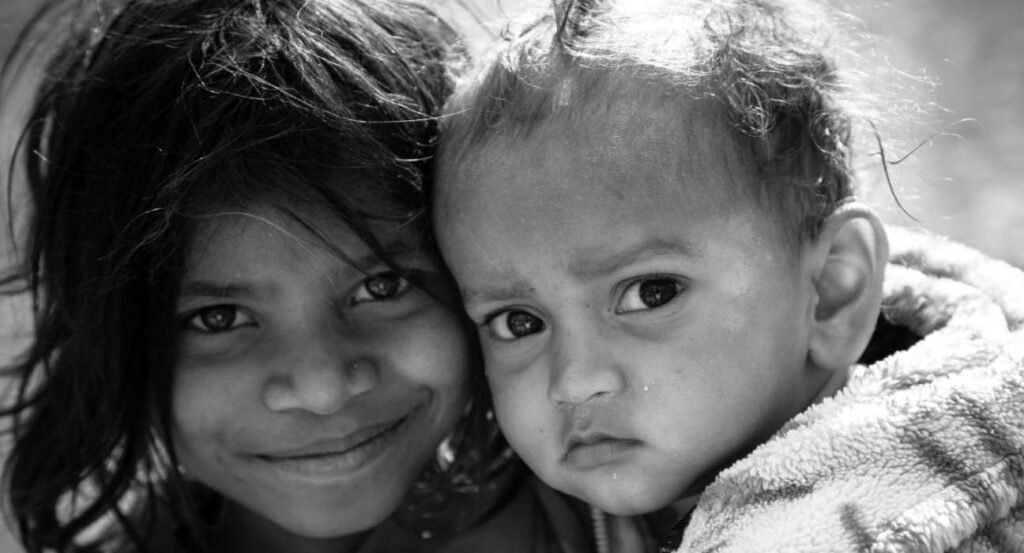There are multiple causes of mental health problems like past trauma, childhood abuse, social isolation, stigma, excessive stress, etc. Some mental health problems get in genes and then may run in families. Among these, poverty is one of the causes that may lead to serious mental health conditions. Mental illnesses can be caused due to poverty. Similarly, poverty could be a consequence of some mental health problems. Poverty is when an individual is devoid or deprived of appropriate/basic resources, means, power and choices, including food, and money and has a poor standard of living. This leads to social stress, trauma and stigma, causing some serious mental health problems.
The same way, serious mental health conditions can lead to poverty due to loss of employment or underemployment which further leads to distorted social relationships and makes the person overthink about the situation and the deeds. The complicated relationship between poverty and mental illness traps individuals with mental illnesses in a vicious cycle, causing them to move in and out of poverty and live precarious lives.
Also Read: Psychology Behind Token Economy
Scotland’s example demonstrates the relationship between deprived areas and suicide rates
A person’s mental health greatly depends on the conditions and situations in which they are brought up, including economic, social, and environmental factors in their place of birth, upbringing, and work environment. A child’s social behaviour and general manners, including basic values, are all determined by their living conditions or lifestyles and the availability of resources. Poverty influences even the most basic mental processes, including thinking and perception. People living in the most deprived areas of Scotland report higher levels of deteriorated mental health and lower levels of basic well-being compared to those residing in affluent households with ample resources.
In Scotland, there is a clear relationship found between deprived areas and suicides as people living in most deprived conditions are three times more likely to get involved in suicides.
Mental health and mental illnesses

It is a state of being, which is always present there no matter what, be it positive or negative while mental illnesses take place when a person’s mental health is not normal. Mental illnesses range from anxiety, and depression to bipolar disorders and schizophrenia. When a person don’t have enough financial resources, their mental health gets disrupted due to all the stress and worries, which can lead to some mental health problems or illnesses. Mental illnesses impact the person’s normal functioning and way of living over a long period of time.
Even the one suffering from mental illnesses due to poverty don’t have enough money to get proper treatment for themselves and most often they neglect the symptoms, considering it last on the priority list. This can then lead to excessive problems and make the situation complicated and somehow severe.
Impact of poverty on mental health
Children raised in poverty have exhibited high levels of cortisol and elevated stress markers. Poverty affects the child’s development of executive functions emotions and attention regulations. People below the poverty line are more likely to experience depression, unlike others. Poverty also has a huge emotional impact on families. It creates stress among the family members, leading to interparental conflicts. Conflicts can even arise between parents and their children as a result of economic pressures. For example, children at times look down upon their parents for not being able to provide small luxuries to them and resent them for working too late to earn money.
Also Read: Does mental illness affect economic development?
Other reasons include the availability of poor facilities like overcrowded, small housing and housing instability which negatively affect the family relationships and increase stress, thereby deteriorating their mental as well as physical health. Poor people generally have to live in high crime neighbourhood and Children brought up their take up such values accordingly and get involved in crime or be a part of gangs engaging in crimes and thievery to suffice themselves and their families. Parents are unable to maintain their work-life balance which reduces the availability of quality time to spend with their children or community members. Low-income fathers work extra hard and extra time to earn money in order to meet the basic requirements of their families.
Poverty changes the way a person perceive themselves and others around
Poverty lowers a person’s self-esteem as they start to believe or think of themselves as inferior to others. It impacts how they see themselves as well as others around the world. Their poor living conditions act like a filter which keeps them away from thinking rationally. They often consider themselves unlucky or disadvantaged people devoid of basic resources. They are regarded as less competent or low in warmth.
Hardworking fathers limit their roles in family involvement and gatherings due to the negative self-perception that comes with the conditions of poverty. They think that they are not doing enough and have failed as a father to provide necessities to the children, which makes them feel stressed and hopeless. Those suffering from poverty have little belief in themselves, and so they doubt their abilities to succeed in life. They are often seen to blame their living conditions and limited access to resources for any mishaps in their career and future, getting envious of the rich ones. Such perceptions can have negative physical as well as psychological and mental consequences, combined with low education and professional facilities.
Poverty as a causation factor of mental illnesses
Poverty increases the risk of having mental health problems directly or indirectly. Many illnesses and disorders like schizophrenia, anxiety, depression and substance abuse can be seen to be diagnosed among those living in poor conditions or are going through Poverty. Stress from poverty leads to depression or other mood disorders. In order to escape from the harsh reality or stress that comes with poor living conditions, people adopt behaviours like substance abuse, consuming alcohol or smoking, which leads to other physical health conditions as well. Also, those suffering from mental illnesses or disorders could also get into Poverty, so it can be said that poverty can be a cause as well as a consequence of mental health disorders and illnesses.
Also Read: Mental Health In India: Challenges and solutions
Poverty during early childhood
Poverty during childhood leads to the production of short-term coping strategies to deal with stressful environments. However, it gives rise to the development of long-term health conditions with increased susceptibility to certain cancers and cardiac diseases. Cognitive performances of children raised in low socio-economic environments show consistent reductions, especially in language function and cognitive control, including attention, planning, and decision-making. Since children from poor backgrounds don’t get the required competitive exposure and resources for development, they show less cognitive ability and neurological activity. In other words, poverty destroys a child’s career and keeps them from dreaming big. They feel less valued and loved.
Furthermore, the conditions in which they are raised are unsafe, as they constantly face threats that make them feel vulnerable. Poverty increases vandalism behaviour, which makes the exposure of children to violence unavoidable. A person enters the cycle of poverty when they develop a scarcity mindset as a result of resource scarcity, which focuses on considering immediate goals and needs, narrowing down their focus instead of thinking about a broad spectrum and considering long-term goals or planning. Instead of saving up for the future, people living in poverty consider spending money and resources on present needs, which prevents them from escaping this never-ending loop of poverty.
Does poverty lead to loneliness?

Poverty is one of the most common reasons for loneliness, and it does intensify it. We have often seen movies or acts where poor people don’t have many friends, or the parents prevent their children from bonding with those people because they consider them to be bad company for their children. Also, people going through poverty isolate themselves. They don’t go to small family gatherings or meet-ups with friends for fear of being insulted or judged by others. Young people feel shame when they see themselves as nowhere at a time when others are learning to stand on their own two feet, trying to be independent, and helping their families by providing resources.
Also Read: The Psychology behind Realism
There is a strong association between the shame of poverty and a cycle of mental health illnesses and drug abuse, which leads to intensifying the behaviours of isolation. Scholars developed the concept of social abjection to understand the loneliness associated with poverty.
Conclusion
Poverty impacts a person’s mental health to a great extent by keeping them from receiving equal resources and facilities. The stress and high anxiety that come with poverty result in experiencing mental illnesses, thereby leading to improper functioning in households and society. It increases one’s need to remain isolated in fear of judgements and abuses, which decreases an individual’s self-confidence and ability to perform well, leaving them to lead a mediocre lifestyle and revolving around the cycle of poverty over generations until one decides to break the loop.
References+
- What causes mental health problems? (n.d.-b). Mind. https://www.mind.org.uk/information-support/types-of-mental-health-problems/mental-health-problems-introduction/causes/#:~:text=childhood%20abuse%2C%20trauma%2C%20or%20neglect,social%20disadvantage%2C%20poverty%20or%20debt
- The difference between mental health and mental illness | HelpStartsHere. (n.d.). HelpStartsHere. https://helpstartshere.gov.bc.ca/blog/difference-between-mental-health-and-mental-illness#:~:text=While%20mental%20health%20is%20always,stressed%20because%20of%20difficult%20situations.
- OACAS Library Guides: Poverty and child welfare: Effects of poverty on families. (n.d.). https://oacas.libguides.com/c.php?g=702168&p=4992460#:~:text=Poverty%20can%20create%20considerable%20stress,parents%20because%20of%20economic%20pressures.
- Publisher, A. R. a. R. O. O. (2016, March 25). 2.4 The consequences of poverty. Pressbooks. https://open.lib.umn.edu/socialproblems/chapter/2-4-the-consequences-of-poverty/#:~:text=Poor%20people%20are%20more%20likely%20to%20have%20several%20kinds%20of,likely%20to%20commit%20street%20crime.
- Psychological perspectives on poverty. (2015, June 4). Joseph Rowntree Foundation. https://www.jrf.org.uk/psychological-perspectives-on-poverty#:~:text=Negative%20perceptions%20affect%20how%20people,reduced%20educational%20and%20professional%20attainment.
- Batsleer, J., & Duggan, J. (2020). Loneliness and poverty. In Policy Press eBooks (pp. 39–50). https://doi.org/10.1332/policypress/9781447355342.003.0004













Leave feedback about this